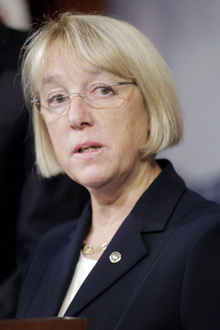In January the Health, Education, Labor, and Pensions (HELP) Committee of the U.S. Senate released a draft bill for reauthorization of the Elementary and Secondary Education Act (ESEA). Entitled the “Every Child Ready for College or Career Act of 2015,” the draft differs markedly from the No Child Left Behind (NCLB) enactment of 2001.
 |
| Sen. Lamar Alexander (R-TN) |
Gone from the new draft are any specialized literacy programs, as well as the troublesome adequate yearly progress (AYP) provisions. The draft contains two different options on assessments, one continuing a federal role and one turning the issue over to the states. It also contains language to allow Title I money to follow the student, a break from current practice.
After careful review, the International Literacy Association (ILA) has responded in a letter to the HELP Committee by declaring its support for federal policy that provides states and school districts with the resources to ensure that every child receives a quality education regardless of economic circumstance, and by urging that education policy be formulated in a way that is capable of practical implementation.
In addition, ILA has requested that the Committee revise the draft bill by adding a dedicated funding stream for a comprehensive literacy program targeting early childhood, grades K–3, and grades 4–12. As it stands, the draft lacks any sustained focus on literacy achievement.
Moreover, ILA has asked that the draft bill be amended to authorize increased federal funding for the professional development of classroom teachers, literacy coaches, and literacy specialists, and to reduce reliance on high states standardized tests in establishing accountability measures.
Read ILA's complete position statement on the ESEA draft bill.
Troubled Legacy of NCLB
Reauthorizing the ESEA is seven years overdue. The delay in getting a successor bill approved has been driven largely by the experience that ensued from the NCLB’s controversial accountability regime. Under NCLB, districts and schools were required to meet to meet AYP targets as measured by student performance on standardized tests. Over time, more and more schools missed their targets, and the whole approach grew increasingly unworkable.
To recover a more practical footing while retaining the student achievement goals of NCLB, the U.S. Department of Education (USED) instituted a waiver program under which states were allowed to opt out of the original AYP approach in exchange for meeting certain conditions, including signing on to standards for instruction and tying teacher performance to student progress.
 |
| Sen. Patty Murray (D-WA) |
The fact that 43 states were given waivers is indicative of just how urgent the situation had become. Nevertheless, the shift to waivers generated a separate controversy. The arrangement substantially expands federal influence over education matters, despite the express language in the NCLB bill and the USED authorizing act that forbids any use of the law to exert federal control over state or local instructional content, academic achievement standards, assessments, curriculum, or program of instruction.
Chair and Ranking Member Perspectives
As the 114th Congress began its work, a new power shift took hold, with Republicans now in control of both houses. Whether this alignment enhances prospects for ESEA reauthorization remains to be seen. The HELP Committee is now chaired by Sen. Lamar Alexander (R-TN) and Sen. Patty Murray (D-WA) is the ranking member. Both senators made opening statements from the floor pledging bipartisan cooperation to get a new bill approved.
Sen. Alexander has set a goal of getting a bill to the floor by the end of February, so it can be debated and amended by the full Senate. He has also made it clear that NCLB unintentionally turned Washington into a national school board, and that oversight of student progress and school performance should be left with the states.
Sen. Murray takes a different perspective on the legacy of NCLB. While acknowledging that NCLB set unrealistic goals for schools across the country, she does not think letting schools and states off the hook for failing to provide quality education for all of their students is a realistic alternative.
Murray notes that NCLB has produced some notable successes since its passage in 2001: graduation rates increased by 10%, regular graduation rates among students with disabilities increased by more than 12%, dropout rates decreased by 17%, and achievement gaps declined for African American and Latino students.
With respect to federal investment in K–12 education, Murray maintains it would be irresponsible to spend billions in federal tax dollars without knowing if the law is making a difference in students’ lives. As she stated in the Committee’s first hearing on the bill, “I would be very concerned about any attempt to eliminate annual statewide assessments, and just as concerned at any attempt to roll back accountability.”
It will be interesting to watch what compromise, if any, emerges from these starting points as work on the ESEA reauthorization continues.

Dan Mangan (dmangan@/) is the Director of Public Affairs at the international Literacy Association. Previously, he was ILA’s Strategic Communications Director and Publications Director and launched the original Reading Today magazine and Reading Today Online (now Literacy Daily). He is a veteran of commercial publishing, a former journalist, and an attorney.